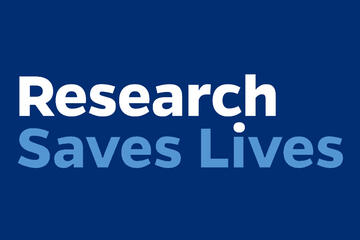Walker Burger always loved baseball, but attending the games of his favorite team, the Atlanta Braves, used to be a physical challenge. In fact, every form of exercise was difficult.
Burger, 35, has a rare inherited condition that causes severe muscle weakness and fatigue, which made the quarter-mile walk from the parking lot of Atlanta's Truist Park to the stands a tiresome trek that required a head start and several breaks along the way.
Now things are different for Burger. A new drug for treatment of his condition, Barth syndrome, which causes a weakened heart and shortened lifespans, was granted accelerated approval by the U.S. Food and Drug Administration on Sept. 19. The drug, elamipretide, was initially evaluated in Barth syndrome cell modeling experiments conducted by scientists at Johns Hopkins Medicine with funding from the National Institutes of Health, and later with support from a pharmaceutical company.
A clinical trial demonstrating the safety and effectiveness of elamipretide in people with Barth syndrome was also conducted at Johns Hopkins Medicine.
Burger has been taking the drug since he began participating in the trial in 2017.
Now he says the long walk to the baseball grounds is no longer a problem, and exercising in general is easier too.
"The symptoms once controlled everything I did and now they don't," he says. "I can walk the quarter mile to the stands, or a mile on a treadmill, without taking a break."
Key Takeaways
- The FDA has approved a first-of-its-kind mitochondrial therapy in the U.S. for the treatment of Barth syndrome, a rare condition that causes muscle weakness, an enlarged heart, and shortened life expectancy.
- The NIH-funded research that went into developing the drug, as well as a clinical trial demonstrating its safety and efficacy, was designed and conducted at Johns Hopkins Medicine.
- The FDA's approval could lead to the development of similar treatments for other mitochondrial disorders, which affect 1 in 5,000 people worldwide.
Barth syndrome is a mitochondrial disorder that affects the energy producing structures within cells. The disorder, which affects fewer than 300 individuals, almost exclusively occurs in males. Rarely, females can develop symptoms. Collectively, mitochondrial disorders are estimated to affect 1 in 5,000 individuals worldwide.
"This FDA approval demonstrates that no matter how rare a disease is, there is hope that with research, funding, and advocacy, we can develop a successful therapy that can improve and save lives," says Hilary Vernon, professor of genetic medicine and pediatrics at the Johns Hopkins University School of Medicine. Vernon is also the director of the Mitochondrial Medicine Center at The Johns Hopkins Hospital.
Symptoms of Barth syndrome generally appear in infancy or early childhood, and include muscle, bone, and heart weakness; growth delays; premature heart failure; and death, according to the Barth Syndrome Foundation.
The potential approval of the therapy for this disease, a first-of-its-kind drug for mitochondrial disease in the U.S., spurs hope for the development of new treatments for other mitochondrial diseases, Vernon says.
Barth syndrome is caused by a mutation of the TAFAZZIN gene, which encodes a protein key to the structure and function of mitochondria, the energy factories of cells. In people with Barth syndrome, the TAFAZZIN protein malfunctions, leading to abnormalities in an important lipid, or fat, called cardiolipin, which is found in mitochondria. This mutation leads to deficient energy production throughout the body, including heart and skeletal muscle.
In lab experiments of these cells, the Johns Hopkins Medicine investigators found that the elamipretide molecule improved energy production and assembly of important protein complexes in the mitochondria. A report of the findings of those experiments was published in 2021 in the Journal of Biological Chemistry. The study's first author, Arianna Anzmann, had received a F31 grant from NIH to conduct the research.
"We thought we could take these results showing the effect of elamipretide on abnormal cardiolipin in Barth syndrome cell models to help patients with Barth syndrome," Vernon says.
Vernon then worked with Stealth BioTherapeutics, a Massachusetts-based drug company that was testing the drug in heart and other conditions. Together Vernon's team and the company designed a 28-week randomized, double-blind, and placebo-controlled clinical trial at Johns Hopkins Hospital in 2017, followed by an extension of the trial that ended in 2021. Last week's FDA approval is based on data including the initial trial and the long-term extension, in which eight of 10 initial participants reached the 168-week visit. These findings were published 2023 in the journal Genetics in Medicine.
In the extension of the trial, eight patients improved their ability to walk in six-minute increments, with an average improvement of 96.1 meters per person over their baseline. Additionally, an improvement was seen in cardiac stroke volume, a measure of heart function. The researchers also found that trial participants had improved cardiolipin levels compared to when they began the study, and that participants reported being less fatigued.
An FDA advisory committee meeting in October 2024 concluded that elamipretide was effective for the treatment of Barth syndrome.
Vernon recently received NIH funding to continue her Barth syndrome research, in which she's investigating the prenatal effects of Barth syndrome in children.
The 2021 cell modeling research study was supported by the National Heart, Lung, and Blood Institute of the National Institutes of Health (F31HL147454).
The TAZPOWER clinical trial was funded by Stealth BioTherapeutics.
Vernon receives research funding support from Stealth BioTherapeutics.
Posted in Health









